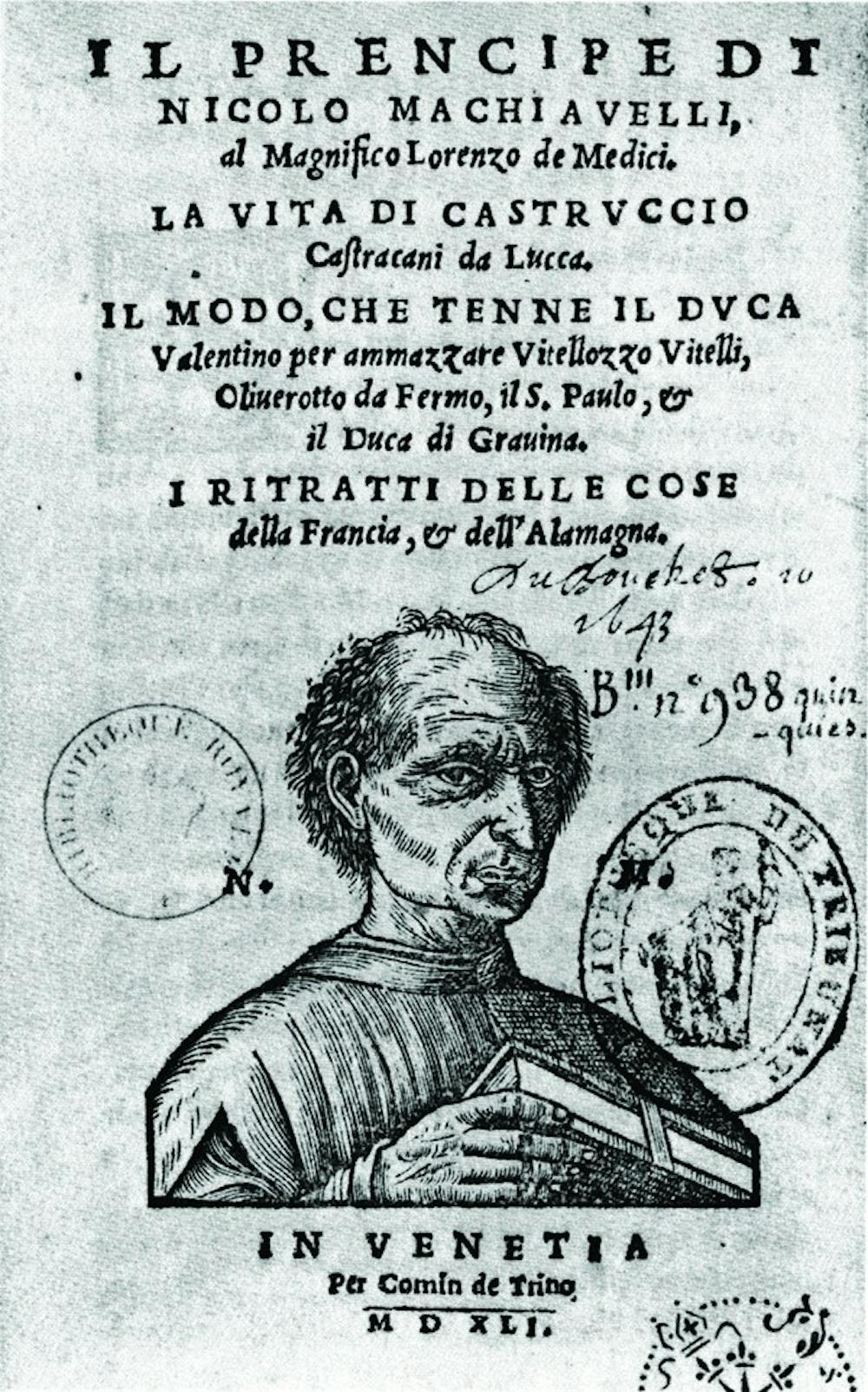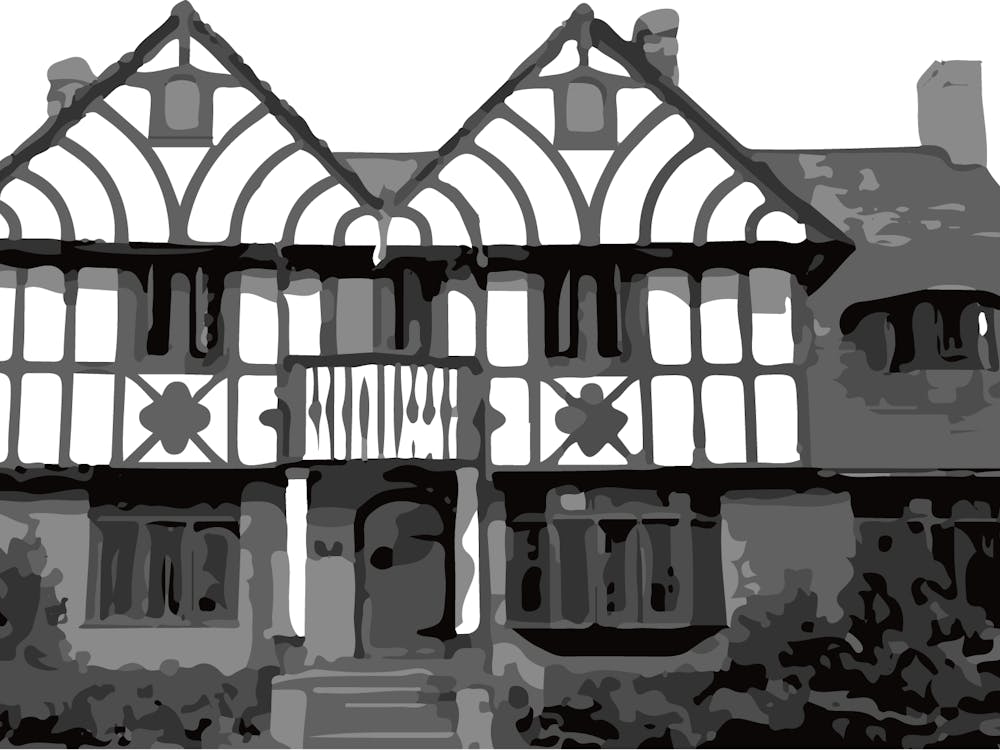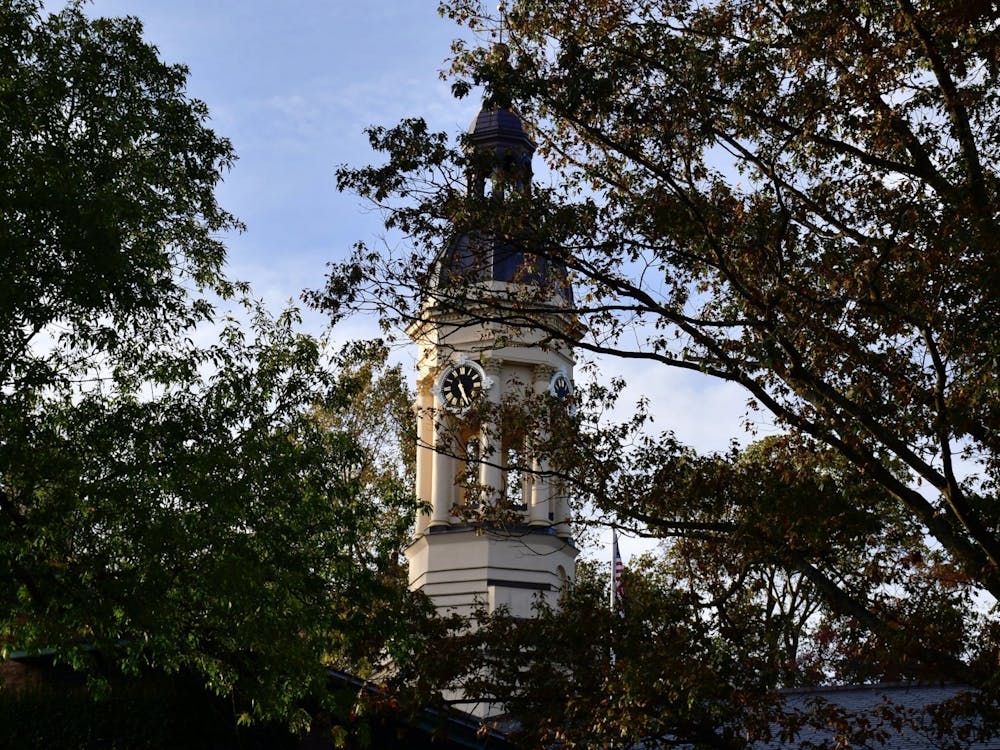While love does not seem like the type of thing you learn from a textbook, at a lecture, or in a seminar, it has been studied in everything from history to sociology and psychology. Unsurprisingly, at Princeton, there are many classes that provide unique opportunities to learn more about love — how it has been written about, how it changes social relationships, how it relates to current politics — and so on. While we can’t promise that these classes will make you an expert in love, they may give you some insight on on how to talk about it.
Of Love and Other Demons (SPA 213 / LAS 214) with Javier E. Guerrero
This course, taught in Spanish, explores love in the rich literary tradition of Latin America and Spain, drawing upon its literature, film, music, and visual arts. Professor Guerrero explained that “seminar participants explore a topic that has challenged the most renowned world philosophers, such as Derrida and Nancy. We love so much, but we are unable to question love or even talk about it. It can be so obvious or abstract that we give up without really trying.”
Guerrero explained that students won’t be reading normal love stories in this seminar. When designing the course, Guerrero saw that pieces been labeled as love stories were “very limited in scope,” while “some of the best pieces on love have been completely overlooked because they have been understood in other contexts and related to other topics.”
As a result, the course covers a wide range of unconventional stories about love: “The Incredible and Sad Tale of Innocent Eréndira and Her Heartless Grandmother” by Gabriel García Márquez, a story of an exploited granddaughter, prostitution, and a murder; Eltit and Errázuriz’s “Soul’s Infarct,” a book on psychiatric patients and photography; and Ribeiro’s “The Way He Looks,” a film about a blind student who falls for a fellow male student.
Guerrero commented that all of these stories challenged the traditionally sacred concept of love. He explained that he was “especially interested in the hidden gems of literature and cinema that contain the most complex and critically challenging love stories.”
Guerrero noted that his “idea is not to repudiate love but rather to hear love when it screams” and that “one of the challenges of this course is to fight the prevailing tendency to idealize love.” In fact, according to Guerrero, the phrases “real love” and “obsession” are strongly discouraged in the seminar. “There is no ‘real love’ in my dark history of the emotion. Instead, there is only love accompanied by its other demons,” he said.
Despite this, Guerrero added that after the course he often hears his students say that “they finally felt in love.” He then explained that "when we face the complexities of our world, when we allow ourselves to doubt love, we acquire the power to live out our own ideas and love, or love even more."
Guerrero mentioned that he got married during the first semester that he taught this course.
The Invention of Romantic Love (FRS 162) with Sarah M. Anderson
From a different perspective, “The Invention of Romantic Love” approaches romantic love in the literary tradition of the West. Professor Anderson explained that she looks forward to “collaborating with students from all disciplines across campus as we think about what makes love ‘real,’ how it is or is not like friendship, and how its representation as the most powerful human emotion was constructed.”
Anderson noted that “we are surrounded by invitations to improve our attractiveness, to love others better, and to have stimulating love lives.” However, Anderson added that she wanted her students to ask themselves questions like: Where does the idea of lovesickness come from? Why is love associated with madness? By what methods can we access and understand an emotion like love in ancient, medieval, and early modern literature?

Students in the course read works of great English literature such as Shakespeare’s “Sonnet 116,” Auden’s “Lullaby,” and Shakespeare’s Romeo and Juliet, while also covering Bernstein and Sondheim’s “West Side Story” and even the medieval songs of the troubadours. In addition, students have access to visual art at the University Art Museum and manuscripts at Firestone Library as resources for their research.
Through these works, Anderson explained that she wants to invite students to “think about that condition of being in love, to examine something that will affect them now and again in their lives, and to consider how literary texts, works of art, and works of music read what may be a universal human phenomenon.”
From her work, Anderson learned, “it’s never a bad idea to have a stock of poems in your head if things have just turned sour between your lover and you.”
Flirtation or Seduction? (FRS 105) with Barbara N. Nagel
Similarly, this freshman seminar approaches love by comparing the concepts of flirtation and seduction and connecting history, philosophy, politics, and literature. Professor Nagel explained that the course attempts to “distinguish the concept of seduction from flirtation,” where seduction is a “theological practice” that requires strategy and a power structure, whereas flirtation is a “non-theological open endeavor” like Kant's concept of the beautiful.
The course discusses these central concepts across works that spanned German critical theory, flirtatious texts, and political texts, including Laclos’ “Dangerous Liaisons,” Kafka’s “The Silence of the Sirens,” Plato’s Symposium, Austen’s “Pride and Prejudice,” Machiavelli’s “The Prince,” and even Riefenstahl’s “Triumph of the Will,” a Nazi propaganda film. Students explored such topics as the boundary between flirtation and love as well as love’s ability to stupefy.
At the same time, Nagel explained that “the very notion of love as we understand it changes radically throughout history.” The seminar covers many of these changes, including how new technologies and apps like Tinder, Grindr, and WhatsApp have changed love, flirtation, and seduction.
Especially given recent political events, Nagel noted that “students were most interested in the political question of seduction ... like comparing ‘Triumph of the Will’ to Trump’s rallies.”
Nagel added that another aspect of love that he’s interested in discussing is love in the political realm. He said that "at this point, the slogan “Love Trumps Hate” comes up ... I think it’s an important thought right now — the question whether love can be a political concept.”
The Politics of Intimacy (WRI 108 / 109) with Alexander Davis
Professor Davis, a sociologist, noted that at the “heart” of this writing seminar is “learning to question what American culture and American institutions tell us are normal, preferable, and desirable ways to connect with other human beings.”
Even at the very beginning of the course, students were already surprised to learn that “the concept of monogamy as we know it today where both the woman and the man are equal with consent of both parties stems from the proletariat rather than the bourgeoisie.”
In the first unit, marriage is heavily covered in sources ranging from Engels’ capitalist critique of the patriarchal family to the Supreme Court case Griswold v. Connecticut, to more recent social science on American expectations of marriage.
The second unit, Davis explained, “is all about exploring the extraordinary range of intimate practices, sexual desires, and romantic preferences that human beings really do have” and “trying to make sense of why and how contemporary American media embrace some of those differences while sidelining or squelching others.”
For the larger picture of the course, Davis explained that the course will grapple with “a dazzling array of perspective on intimacy — from the most interpretive corners of the humanities to the more equation-bound disciplines among the sciences and engineering.”
Although recognizing the interaction between our institutions, our ideologies, and ourselves is very valuable, Davis noted that the most valuable insight from studying intimate politics is that it provides “unparalleled fodder” for “grappling with challenging material from multiple perspectives,” which, in turn, “is essential to cultivating the critical thinking skills and intellectual independence at the heart of a liberal arts education.”









